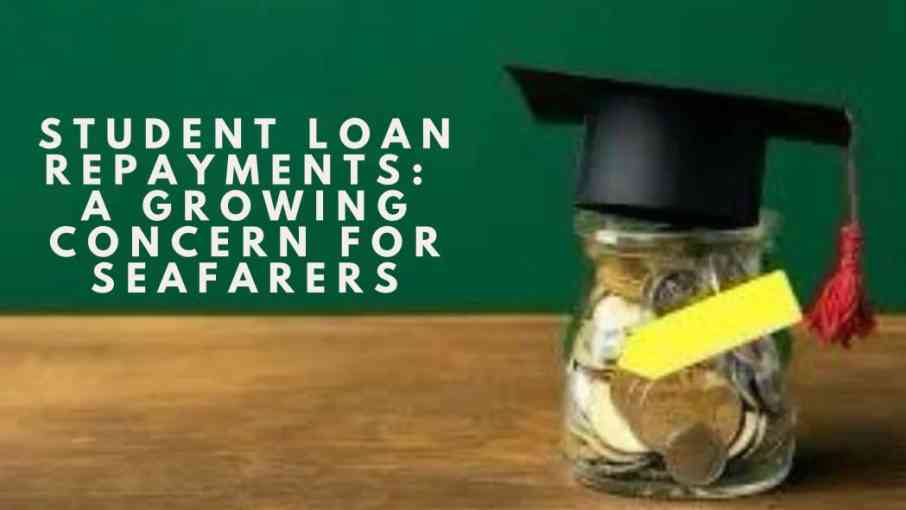Seafarers Earnings Deduction (SED) and Student Loan Repayments: A Growing Concern for Seafarers
- Authors
-
-

- Name
- Patrick Maflin
-

For many seafarers, the Seafarers Earnings Deduction (SED) offers a significant tax benefit, allowing qualifying earnings from work at sea to be exempt from UK income tax. However, if you also have a UK student loan, the picture is far less straightforward.
In recent years, we’ve seen an increase in cases where the Student Loan Company (SLC) calculates repayments based on gross income rather than taxable income after SED. This has resulted in inconsistent outcomes — while some seafarers find their repayments are calculated correctly, others have faced inflated demands and growing loan balances due to accruing interest.
This article explains what we know so far and suggests some practical steps to help you manage the situation.
The Problem: SLC and SED Don’t Always Align
When you submit your Self Assessment tax return claiming SED, HMRC correctly adjusts your taxable income. However, we’ve seen growing inconsistency in how the SLC treats this information.
• In many cases, the SLC appears to ignore the SED adjustment and calculates repayments based on your total gross earnings. • This can lead to higher-than-expected repayments and unexpected demands. • Some seafarers report correct calculations, but many others face a frustrating administrative process when trying to have SLC recognise their reduced taxable income.
Rising Balances and Accruing Interest
Incorrect repayment calculations can have long-term consequences:
• Repayments based on inflated earnings leave less disposable income while working. • If you challenge the SLC’s figures and pause repayments, interest may continue to accrue during the dispute period. • Over time, this can leave some borrowers in a worse financial position, even when their income should qualify for SED relief.
What You Can Do
Because the SLC’s approach to SED appears inconsistent, there is no guaranteed solution at this stage. However, there are practical steps you can take to improve your position and minimise the risk of errors.
A. Notify the Student Loan Company (SLC)
If you’re working at sea, particularly on vessels such as superyachts or offshore ships, you may wish to inform the SLC of your overseas employment status. This can be done via your SLC online account or by contacting them directly.
B. Completing the Overseas Income Question
When updating your SLC details, you’ll be asked whether you have overseas income.
Some seafarers who are eligible for SED choose to select “No” and then contact the SLC to confirm their SED status. We also recommend requesting written confirmation from SLC if possible.
However, it’s important to note that even where SED is correctly claimed, the SLC may still calculate repayments based on gross earnings in some cases.
C. Keep Records and Stay Proactive
Given the uncertainty around how SLC applies the rules, we recommend:
• Keeping copies of your tax returns, P60s, and SED claim calculations. • Retaining written confirmation from SLC wherever possible.
• Regularly checking your SLC statements to ensure repayments are based on the correct figures.
Having a clear paper trail makes it easier to challenge incorrect calculations if they arise.
Summary Checklist
• Notify the SLC of your working-at-sea status and confirm your SED eligibility where appropriate.
• When updating your details, consider selecting “No” for the overseas income question if you qualify for SED, but be aware this does not guarantee the correct calculation.
• Contact the SLC and, where possible, request written confirmation of how your repayments will be calculated.
• Keep records of tax returns, SED claim calculations, and SLC correspondence.
• Monitor your SLC statements regularly to check for unexpected repayment amounts.
• Act quickly if you believe your repayments are incorrect — having records will help you resolve disputes more efficiently.
Final Thoughts
The Seafarers Earnings Deduction remains a valuable tax relief for qualifying seafarers, but if you also have a UK student loan, the situation is far from straightforward.
While some borrowers find their repayments are calculated correctly, others face inflated demands despite correctly claiming SED. For now, the best approach is to be proactive: notify SLC where appropriate, keep detailed records, and monitor your statements closely.
We will continue to monitor developments in this area and update our advice as more clarity emerges.


